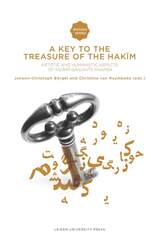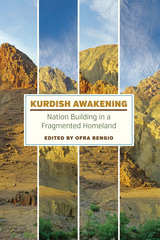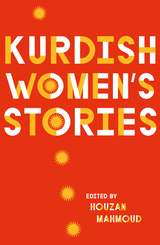3 start with K start with K


Kurdish Awakening examines key questions related to Kurdish nationalism and identity formation in Syria, Iraq, Iran, and Turkey. The world’s largest stateless ethnic group, Kurds have steadily grown in importance as a political power in the Middle East, particularly in light of the “Arab Spring.” As a result, Kurdish issues—political, cultural, and historical alike—have emerged as the subject of intense scholarly interest. This book provides fresh ways of understanding the historical and sociopolitical underpinnings of the ongoing Kurdish awakening and its already significant impact on the region.
Rather than focusing on one state or angle, this anthology fills a gap in the literature on the Kurds by providing a panoramic view of the Kurdish homeland’s various parts. The volume focuses on aspects of Kurdish nationalism and identity formation not addressed elsewhere, including perspectives on literature, gender, and constitution making. Further, broad thematic essays include a discussion of the historical experiences of the Kurds from the time of their Islamization more than a millennium ago up until the modern era, a comparison of the Kurdish experience with other ethno-national movements, and a treatment of the role of tribalism in modern nation building. This collection is unique in its use of original sources in various languages. The result is an analytically rich portrayal that sheds light on the Kurds’ prospects and the challenges they confront in a region undergoing sweeping upheavals.

'A fascinating, inspiring journey' - Meredith Tax, author of A Road Unforeseen
Kurdistan has had a tumultuous history, and the women who lived there have experienced life like no other. From Saddam Hussein’s reign of terror beginning in the 1960s, to the fight against ISIS today, violence, revolution, and questions around identity, agency, survival, and resistance have been at the forefront of women’s lives for decades.
This book is a collection of these women’s stories written in their own words. Each story reveals a tapestry of experiences, including political activism under Saddam and armed resistance in Rojava’s PKK and YPG and Komala in Rojhalat. This is in addition to experiences of FGM and overcoming victimhood, life under extreme conservatism, as well as a look into the work of artists, poets, novelists, and performers whose work represents a complicated relationship with Kurdistan.
These rich and nuanced insights come from a group of women from a nation without a state, who are now scattered across the world. Collectively, they take the reader on a journey that will inspire feminist, anti-fascist, and anti-racist people across the world.
READERS
Browse our collection.
PUBLISHERS
See BiblioVault's publisher services.
STUDENT SERVICES
Files for college accessibility offices.
UChicago Accessibility Resources
home | accessibility | search | about | contact us
BiblioVault ® 2001 - 2024
The University of Chicago Press









